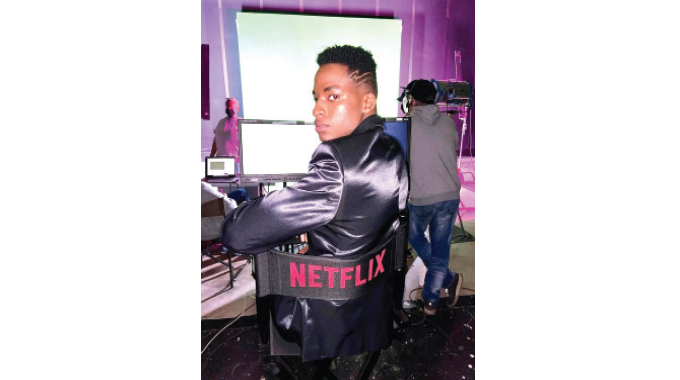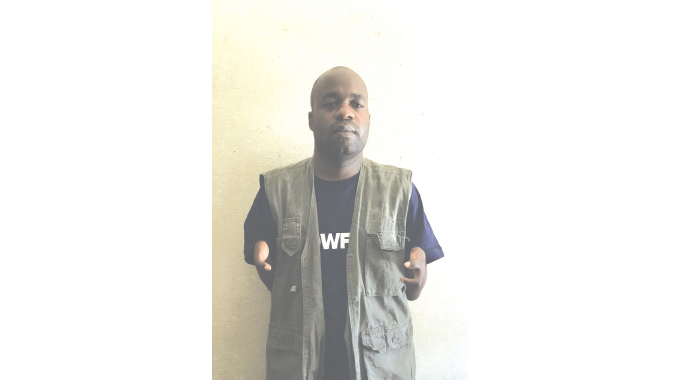Hope for children with both genitalia

Thandeka Moyo-Ndlovu, Senior Health Reporter
TWO years ago, an intersex S’thabiso underwent corrective surgery at Mpilo Central Hospital which has since delivered her from years of self-hate, rejection and ridicule from her community.
Also referred to as hermaphroditism, the condition entails having both male and female reproductive organs.
Corrective treatment involves surgery, scans and hormonal balance medication which costs at least US$3 000, a figure which is out of reach for many ordinary Zimbabweans. Delays in starting the treatment has an immense life-altering impact on one’s reproductive health, quality of life which is worsened by social stigma and psychological effects.
Some marriages have broken down after the birth of babies with this condition while some children have been abandoned as families claim they are a source of ridicule and stigma.
On the other hand, activists have argued that the issue relates to one’s sexuality and surgery should be conducted once one is old enough to decide on their sexual identity.
The rare condition affects urine outflow and may lead to kidney failure in some instances.
In cases when one starts menstruating, the blood may accumulate and lead to health complications which include cancer. The hormonal imbalance affects the regulation of salt in the body steroids which are important for brain development.
To address these challenges and raise awareness, Mpilo established a register for the affected in 2019. S’thabiso is one of the latest success stories of the initiative.
Her story has helped dispel myths and misconceptions around ambiguous genitalia.
For S’thabiso, the condition forced her to drop out of school at the age of 12 as she could no longer bear name calling and stigma.
Mrs Ruth Ndlovu, an ambiguous genitalia activist, is assisting 15 other affected children in need of financial support to undergo scans and treatment like S’thabiso.
“We have registers from communities with children who are failing to live their lives normally because of ambiguous genitalia. As we continue raising awareness on the issue, we also hope that we will get well-wishers to help them overcome mental struggles and all challenges they come across in life because of this birth defect,” she said.
Mrs Ndlovu said Sithabiso’s family was happy that the girl found peace after undergoing the surgery in 2019.
“In 2019, she had already dropped out of school when we first learnt about this initiative at Mpilo. What worsened her plight was that she was an orphan and the stigma she suffered in the community and school forced her to quit school,” she said.
“When we heard about the Mpilo initiative on Facebook, the family was willing to come through. By then they were based in Triangle but came all the way as we desperately wanted her to live a normal life like other children.
Unfortunately, when her parents died, they had not discussed or resolved on the way forward regarding this issue and we were happy to hear that at Mpilo, there were health care workers who were already addressing this challenge.”
Mrs Ndlovu said ambiguous genitalia affects many children especially in rural areas who have no access to information and resources
“This is not an issue to do with witchcraft as some people claim but it is prevalent and needs to be addressed in communities. I have a friend who was divorced because she had given birth to a child with ambiguous genitalia,” said Mrs Ndlovu.
She said S’thabiso is now a happy girl and has resumed her studies.
“We are grateful for the help we received from Mpilo and all we appeal for now are clothes, pads and toiletries to help S’thabiso. The family is also struggling to buy hormonal treatment medication which costs US$40 monthly and is part of the process to help her deal with the condition,” she said.
Mrs Ndlovu said those who may want to help can chanel the assistance through Mpilo acting chief executive officer Professor Solwayo Ngwenya.
She said awareness campaigns targeted at churches, registry general officials and churches should be conducted as these institutions often fuel stigma around the issue without noticing.
Prof Ngwenya, the Mpilo acting chief executive officer, said training of health care workers had started at Mpilo to raise awareness on ambiguous genitalia. He said it was important for nurses and midwives to be aware of the condition and what to do so that they do not alarm mothers who would have given birth to such babies.
“I have special interest in ambiguous genital and intersex. This come about because there are a lot of people who are suffering in the community alone without help. We do not want people to continue suffering from conditions that may be corrected to allow the flow of urine and blood and also help people receive psycho-social counselling,” said Prof Ngwenya.
He said the subject remains sensitive in many communities as many are quick to conclude that it has everything to do with homosexuality.
“The subject is very important because if we do not do certain procedures like removing inappropriate organs in the body, it may result in early development of cancer, and unnecessary loss of life.
This is purely clinical and not about sexual rights, we want to see our children functioning normally as delays may force families to assign a desired gender only to be shocked during adolescence when hormones take over and they discover the child was supposed to be something else,” added Prof Ngwenya.
He called for more resources to be allocated to such initiatives to reduce stigma and myths which are currently circulating around ambiguous genitalia.
* Name changed to protect her identity.











Comments